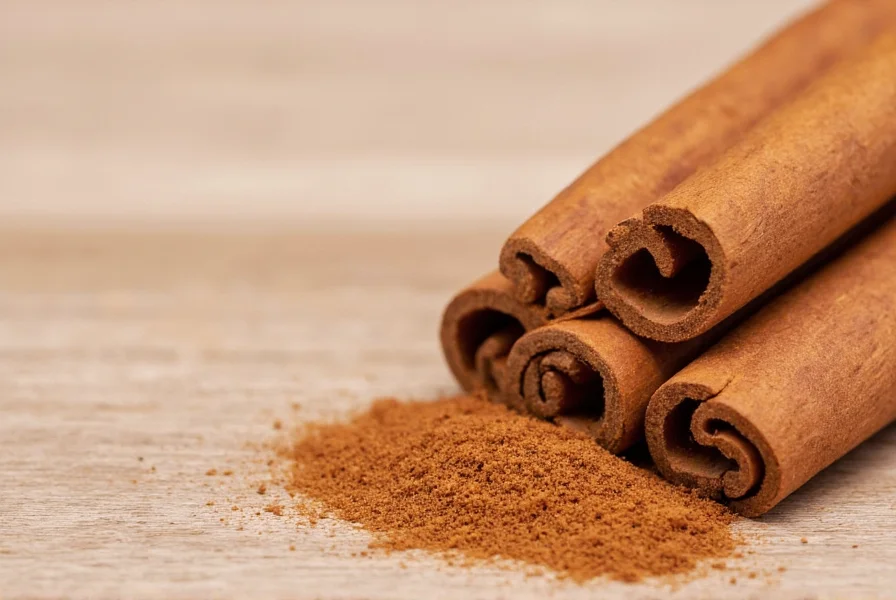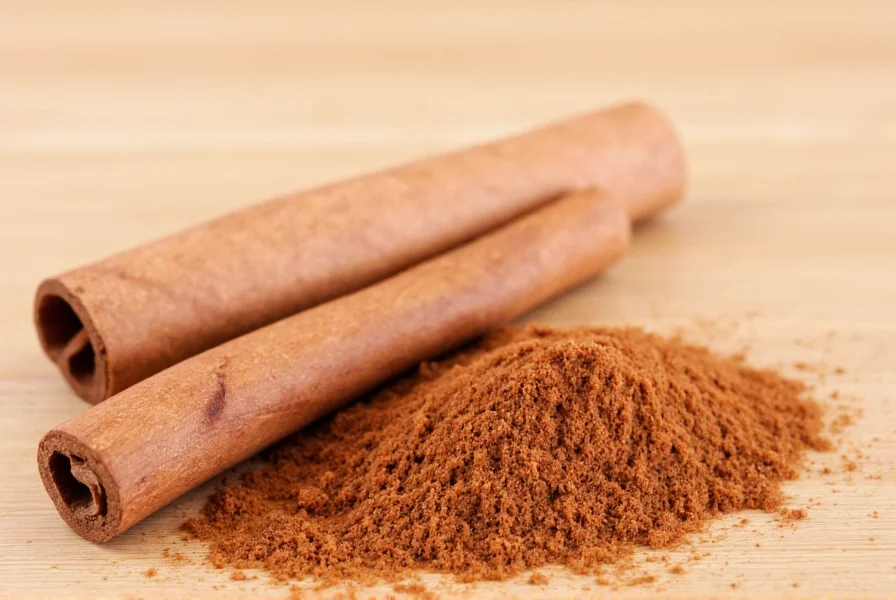Many people wonder does cinnamon really help with weight loss after hearing claims about this common spice's potential benefits. Let's examine what research actually says about cinnamon and weight management.
The Science Behind Cinnamon and Metabolism
Cinnamon, derived from the bark of Cinnamomum trees, contains bioactive compounds like cinnamaldehyde that have demonstrated metabolic effects in scientific studies. Research published in the Journal of the Academy of Nutrition and Dietetics indicates that cinnamon may help improve insulin sensitivity, which could indirectly support weight management efforts.
A 2019 meta-analysis in Nutrition Reviews examined multiple clinical trials and found that cinnamon supplementation (typically 1-6 grams daily) showed modest improvements in fasting blood glucose levels. Since insulin resistance often complicates weight loss efforts, this metabolic effect might provide some indirect support for those managing their weight.

What Research Says About Cinnamon and Weight Loss
When evaluating scientific evidence on cinnamon for weight management, the results are nuanced:
| Study Type | Findings on Weight | Limitations |
|---|---|---|
| Human Clinical Trials | Minimal direct weight loss effects; some metabolic improvements | Small sample sizes, short duration (4-16 weeks) |
| Animal Studies | More significant weight and fat reduction observed | Results don't always translate to humans |
| Observational Research | No direct correlation between cinnamon consumption and weight loss | Cannot establish causation |
According to Dr. Sarah Chen, a nutrition researcher at Stanford University, "The metabolic benefits of cinnamon are real but modest. Anyone claiming cinnamon alone will produce significant weight loss is misrepresenting the science. It might be a helpful addition to a comprehensive weight management plan, but it's not a magic solution." This perspective aligns with current understanding of cinnamon supplements for weight control.
How Cinnamon Might Support Weight Management
While cinnamon isn't a weight loss miracle, it may contribute to metabolic health in several ways that could indirectly support weight management:
- Blood sugar regulation: Improved insulin sensitivity may reduce cravings and prevent blood sugar spikes that lead to fat storage
- Anti-inflammatory effects: Chronic inflammation is linked to obesity; cinnamon's anti-inflammatory properties might help address this factor
- Metabolic rate: Some animal studies suggest cinnamon may slightly increase metabolic rate, though human evidence is limited
- Healthy substitution: Using cinnamon instead of sugar in foods provides flavor without added calories
These mechanisms explain why some people report how to use cinnamon for metabolic health as part of their weight management strategy, though effects are generally subtle.
Realistic Expectations and Limitations
It's crucial to understand what cinnamon cannot do for weight loss. No high-quality research supports claims that cinnamon:
- Significantly increases fat burning
- Suppresses appetite substantially
- Produces noticeable weight loss without dietary changes
- Replaces the need for exercise or calorie control
The American Heart Association emphasizes that natural ways to support weight loss with cinnamon should be viewed as complementary approaches, not primary strategies. "Any metabolic benefits from cinnamon are modest at best," states Dr. Michael Reynolds, a cardiologist with the association. "The foundation of weight management remains calorie balance, physical activity, and overall dietary patterns."

Practical Recommendations
If you're interested in incorporating cinnamon for potential metabolic benefits, consider these evidence-based suggestions:
- Use 1-2 teaspoons (2-4 grams) of Ceylon cinnamon daily, which has lower coumarin content than Cassia
- Add to foods you already eat: oatmeal, smoothies, yogurt, or roasted vegetables
- Combine with other metabolic-supportive foods like green tea, berries, and nuts
- Never replace proven weight loss methods with cinnamon supplementation
- Consult your healthcare provider before using cinnamon medicinally, especially if taking diabetes medications
Remember that cinnamon blood sugar effects weight loss connection is indirect at best. The most effective approach remains a balanced diet, regular physical activity, adequate sleep, and stress management.
Conclusion
The question can cinnamon help you lose weight deserves a nuanced answer. While scientific research shows cinnamon may offer modest metabolic benefits that could support weight management efforts as part of a comprehensive approach, it is not a weight loss solution by itself. Current evidence suggests any effects would be subtle and should be viewed as complementary to established weight management strategies rather than a primary intervention. For sustainable weight management, focus on evidence-based approaches while considering cinnamon as a potentially beneficial addition to your overall healthy lifestyle.











 浙公网安备
33010002000092号
浙公网安备
33010002000092号 浙B2-20120091-4
浙B2-20120091-4